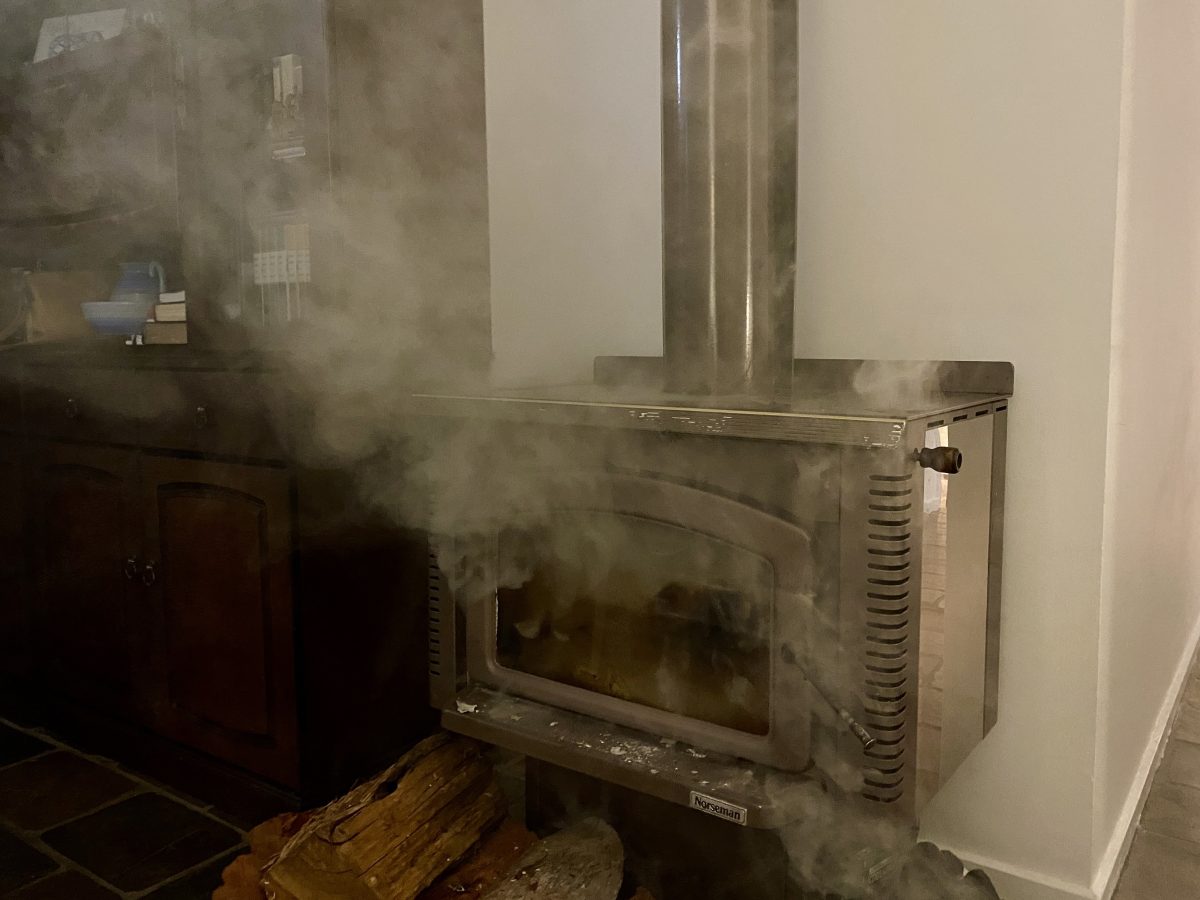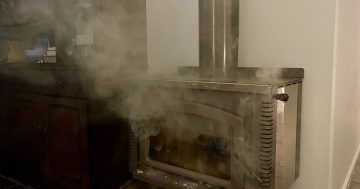
An estimated 43 to 63 deaths per year in colder years and 26 to 36 deaths per year in milder years were attributable to wood heater smoke. Photo: James Coleman.
Smoke from wood heaters causes as many as 63 avoidable deaths per year in the ACT and has a similar impact to the extreme smoke of the 2019-20 Black Summer bushfires, researchers have found.
The paper published by an ANU-led research network said “action should not be delayed” in banning new wood-fired heaters and phasing out existing units. However, the ACT Government is still holding firm on its planned phase-out date of 2045.
“The consequence of current wood heater use in the ACT is 11 to 63 avoidable deaths, equivalent to $57 to 333 million in the annual cost of deaths, comparable with the 31 deaths in the ACT attributable to the bushfire smoke during the Black Summer of 2019-20,” the researchers said.
The researchers assessed fine particulate matter (PM2.5) levels in three stations – Monash, Florey and Civic – over the periods of 2016-18, 2021 and 2022 and cross-referenced this with published health statistics to estimate the number of deaths and the associated cost of deaths attributable to wood heater smoke.
Using the most conservative exposure-response function, the estimated annual deaths attributable to wood heater smoke were 17 to 26 during the colder three years and 11 to 15 deaths during the milder two years.
Using the least conservative exposure-response function, an estimated 43 to 63 deaths per year in colder years and 26 to 36 deaths per year in milder years were attributable to wood heater smoke.
“The estimated contribution of wood heaters to ambient PM2.5 pollution and its impact on public health has caused concern in the ACT,” the paper said.
The researchers said wood heaters have long been recognised as major sources of pollution in the ACT, particularly in areas such as the Tuggeranong Valley, where air stagnates in winter and wood heaters are particularly numerous.
They also noted that there is no safe exposure to PM2.5 pollution, so reducing exposure to wood heater smoke, even from levels below current particulate air pollution standards, can have substantial health benefits.
Wood heaters are already banned in some suburbs, but they are still used in about 11 per cent of occupied private dwellings in the ACT, according to 2022 estimates.
In August, the ACT Government announced it was endorsing a phase-out of wood heaters in all suburbs, but this would be a gradual transition.
Environment Minister Rebecca Vassarrotti said she welcomed the report’s findings, but there were no plans to move the phase-out date forward for now.
“This report is a welcome addition to the evidence base that supports the ACT Government’s decision to phase out wood fire heaters by 2045,” Ms Vassarotti said.
“The 2045 phase-out date was chosen in line with the ACT Government’s pathway to electrification to transition away from fossil fuel gas. As new evidence and technologies emerge, the government’s approach will respond accordingly. As Minister for the Environment, I am open to investigating how we support the community to transition faster.”
Ms Vassarotti said there are some steps Canberrans can take to reduce air pollution using wood heaters and firepits.
“Throughout most of the year, Canberra has excellent air quality. Higher levels of air pollution during winter pose for some members of our community,” she said.
“Burning better will not only reduce smoke from your wood heaters, but it can also make heaters more efficient and save residents money.
“Canberrans can make a difference by opting for dry and well-seasoned wood obtained from a trusted firewood supplier.”
Ms Vassarotti said the ACT Government has started work on a new bushfire, smoke and air quality strategy since its decision to phase out wood heaters, and there will be more announced on how this will work in the new year.
Other advice on wood fire heaters in the ACT can be found on the ACT Government website.
Original Article published by Lizzie Waymouth on Riotact.





